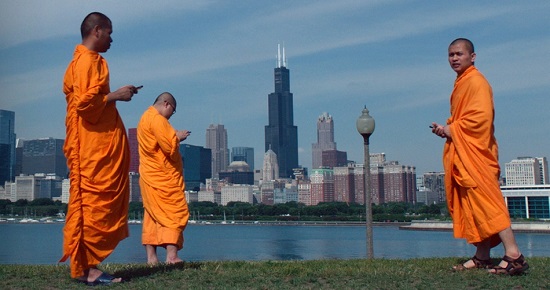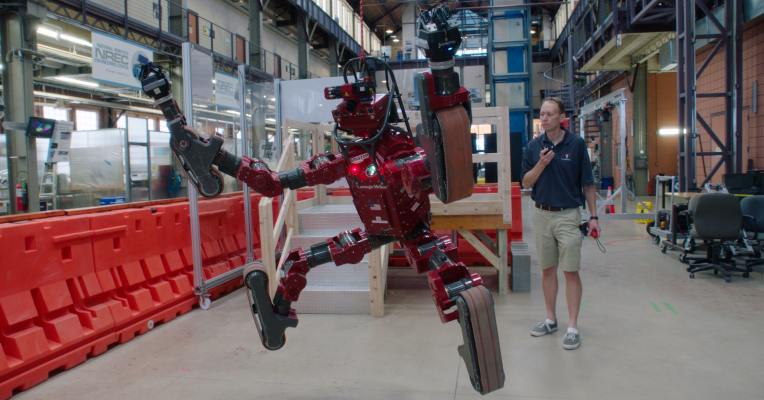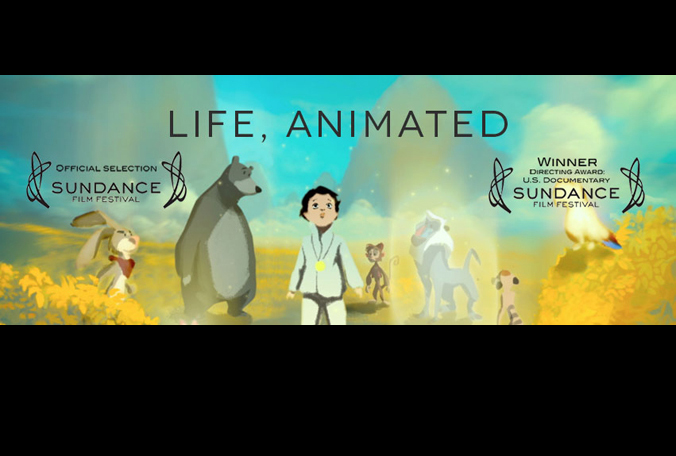Chicago Critics Film Festival, 2016 (May 20-26)
 Scott Pfeiffer
Scott Pfeiffer  Friday, May 20, 2016 at 12:38PM
Friday, May 20, 2016 at 12:38PM This weekend is shaping up to be an eventful one for Chicago's cinema connoisseurs. The Chicago Critics Film Festival is back, now in its fourth installment; its mission is to "replicate the international festival experience in Chicago." Our local intrepid film critics have ventured out into the big wide world, to the biggest festivals--Sundance, South by Southwest, Berlin, Toronto. Now, the treasure hunters have returned to present us with a curated collection of the jewels they discovered.
For those of us who always dreamed about what a day at one of the international festivals would be like, this Sunday, in particular, sounds like an opportunity to experience such a day right her in our own backyard, "careening from Iran to New Zealand to New York City to France, emerging on the other side exhausted but supremely satisfied" (in the words of RogerEbert.com's Brian Tallerico, co-producer of the event). It should be exhilarating to ride this "roller coaster." My full pass in hand, I'm ready to strap in.
I've had a chance to review three films on the schedule. All three are recommended film experiences: funny, moving, sometimes even illuminating. The Herzog is, I think, pretty nearly essential viewing. Chockfull of ideas, it's by turns exhilarating and terrifying. It can send shivers down your spine, proposing that we are living in an era in which we're experiencing nothing less than a shifting definition of what it means to be human. The full fest slate can be found here.
Hunt for the Wilderpeople

Here's a cheeky, heartwarming, rousing comedy/adventure from Taika Waititi, who co-directed "What We Do In the Shadows," one of the delights of last year. It takes us deep into the jungle-like forests of the vast New Zealand bush. Chubby juvenile delinquent Ricky Baker (Julian Dennison) is a "real bad egg," in the opinion of the evil social-services agent (Rachel House) who dumps him at his foster home on the edge of the bush. Met by his new foster mom, kind Bella (Rima Te Wiata), Ricky's not impressed with the new digs, until, hoving into view, he espies Bella's husband Hec (a crusty, laconic Sam Neill, salty and great). A sort of Hemingway of the bush, Hec is first glimpsed carrying a rifle with a boar slung over his back. Pretty soon our unlikely heroes, and their pooches, are on the run through the bush, trying to escape a manhunt. The rebels become unlikely folk heroes. (When uttered, the name is almost always "Ricky Baker" in full, as if the boy is a legend.) They meet colorful characters in the bush: a happy, unconventional family; the cheerful "Psycho Sam (a fun turn by Rhys Darby). The feeling of wide open space, of wilderness and mountains and sky and lakes, is amplified by Waititi's wonderful musical choices. These include splendid use of Nina Simone"s "Sinnerman" and dramatic deployment of Leonard Cohen's "The Partisan." The movie's sentiment is always leveled with saltiness, its sweetness cut with vinegar. It's got overtones of "Babe" and "Up"--and even, in Ricky Baker's imagination, "Lord of the Rings." Late nods to "Mad Max" and "Thelma and Louise" are perhaps not seamlessly integrated, yet "Hunt for the Wilderpeople" is a delightful ode to nonconformity and wildness. (101 minutes).
Rating: ***1/2

Lo and Behold: Reveries of the Connected World

Werner Herzog's meditative documentary is about "one of the biggest revolutions we as human beings are experiencing": The Internet. It permeates everything, but is it evolution or devolution? There's the good of the Internet, as shown by an on-line community of gamers who collectively design molecules, thereby solving puzzles that had stymied cancer researchers. There's the bad: addictions, unspeakable cruelty. Deep critical thinking is lost as we build machines to think for us. We meet people ultra-sensitive to radiation, whose lives were ruined when wireless towers went up. Now, they have congregated in "a town without the Internet": Green Bank, West Virginia, the home of one of the world's largest radio telescopes. It awaits transmissions from outer space--perhaps, as Herzog muses, listening for Elvis. New wonders are on display, from driverless cars to autonomous soccer-playing robots. (Of the robot he helped create, Herzog asks an engineer: "Do you love it?" It's the kind of question only Herzog would ask, and "Yes!" is the immediate, delighted reply.) A flare from the sun, or even a hurricane, could wreak havoc with the Internet, pitching civilization into chaos. Or, such a disaster could be man-made: we meet a security analyst who defended Sandia National Laboratories from the greatest Cyberwar attack ever launched (the poetically named Titan Rain). It's all very perilous, but Herzog seems cheerful. After all, a company called Spacex is working on taking people to Mars. In my favorite moment, Herzog casts his eye across the beautiful skyline of Chicago. Noting that it appears "devoid of inhabitants," he muses that we must assume that everyone has left for Mars. Then, looking back on the city from the lakeside walkway leading to Adler Planetarium, he espies what he calls "stragglers left behind": a group of monks in their orange robes, all gazing into their cell phones, as Elvis sings "Are You Lonesome Tonight" on the soundtrack. It's an instance of what Herzog's rich body of documentaries have that too many lack: transcendent imagination. (98 m)
Rating: ****1/2

Life, Animated

Ron Suskind is a well-regarded journalist, and this heart-wrenching documentary, directed by Roger Ross Williams, tells the story of how his family used Disney films to reach his autistic son, Owen. When he was three years old, Owen "vanished": his parents speak in terms of a kidnapping, though his body was right there. Diagnosed with autism, Owen went five years either being completely silent or mumbling gibberish. The specter arose that he might never speak again. One night, quite by accident, Ron hit on a discovery. Putting on his son's Jafar puppet, he had his first ever conversation with his son--as Jafar and Iago from "Aladdin." It was a revelation: he's still in there, says his dad. He's in a prison of autism, and we need to pull him out. Speaking to him in Disney dialogue become their way of bringing him out of the darkness. (Owen particularly loves the Disney sidekicks, like Jafar and Sebastian, the little crab from "The Little Mermaid." A skilled artist, he can draw them all, in their hundreds). As his dad says, what they finally understood is that he's using that world to make sense of our world. When we meet Owen, he is a jovial, funny young man with some tics and a wonderfully expressive face. He is a kind of cinephile: he's memorized ever single Disney animated film. It's a kick to watch him watch Disney, to see the wonder he feels. He gives himself over so completely to that world, laughing and shouting out lines. The scene in which Owen shows "The Lion King" to a class of other developmentally disabled people is a testament to the transportive power of cinema like nothing since "Sullivan's Travels," when those prisoners became helpless with laughter watching Mickey Mouse. Will an autistic person always be dependent? Can Owen lead a meaningful life? We follow him as he is on the cusp of graduating and going out into the world as an independent man. His parents' non-condescending, bone-deep love for Owen is deeply moving, and the visual and aural editing of this film is a real feat, weaving the vivid world of Disney into the tapestry of Owen's life. Evocative use is made of original drawings and animation. There's a moment I can't stop mulling over. Speaking to the camera, Owen's mom recalls the evening Ron turned to her and asked the key question: "So who decides what a meaningful life is?" (92 m)
Rating: ***1/2

Key to ratings:
***** (essential viewing)
**** (excellent)
*** (worth a look)
** (forgettable)
* (rubbish!!)


Reader Comments